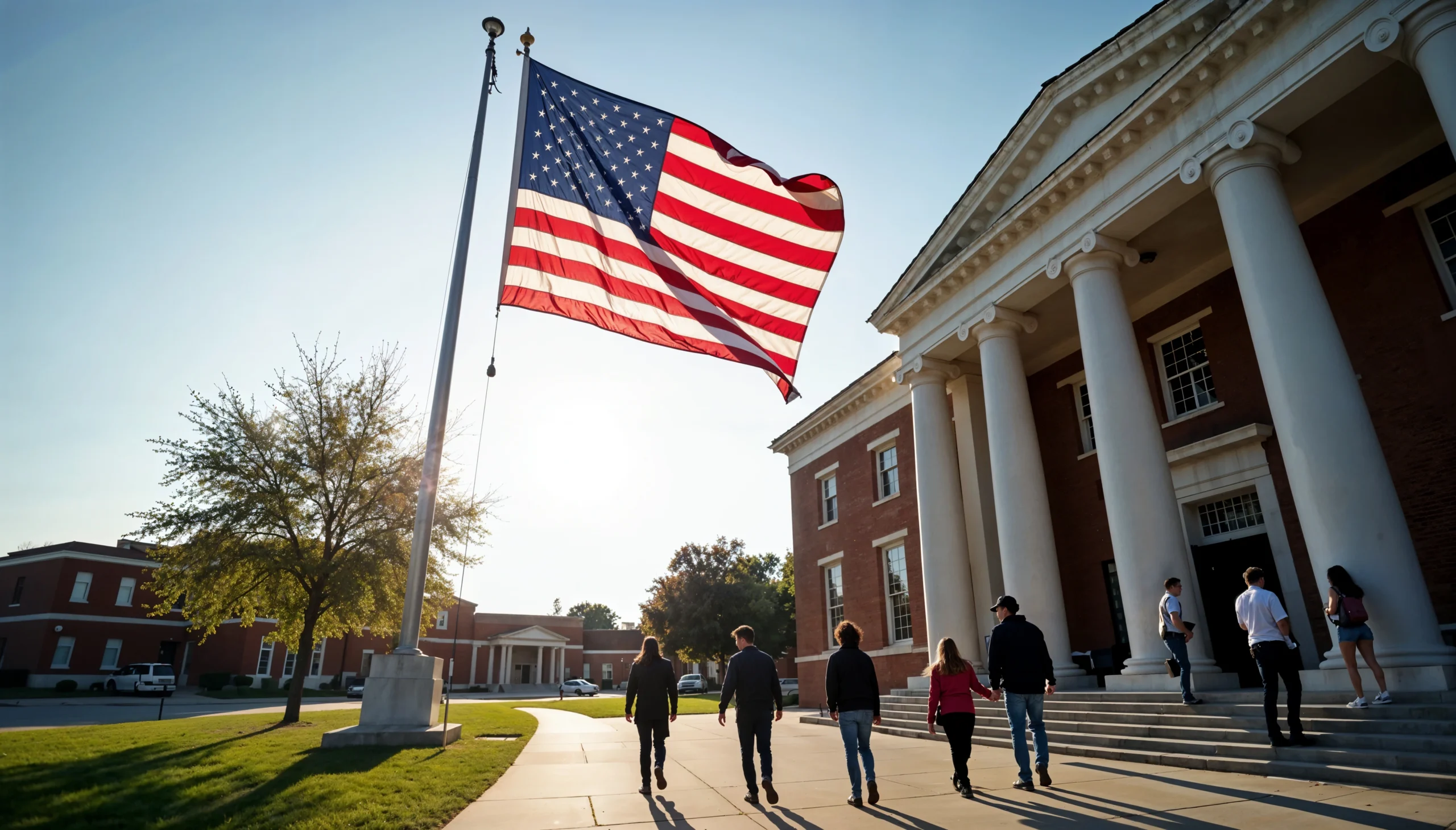How the Trump Administration’s Policies Are Impacting International Students in 2025June 5, 2025

In 2025, the return of the Trump administration has ushered in a new era of immigration reform, reigniting concerns within the international student community. With significant policy changes targeting visa processes, social media vetting, and the revocation of visas, many students around the world are reconsidering their dream of studying in the United States. This blog unpacks these developments and examines their implications for students aiming to pursue higher education in the U.S., a country that has long been a top destination for global learners.
1. Suspension of New Student Visa Appointments
One of the most immediate effects of the new immigration stance has been the U.S. State Department’s directive to embassies worldwide: halt the scheduling of new student visa interviews. This unprecedented move is part of a broader strategy to ramp up security checks and enforce more stringent vetting standards.
While existing visa appointments are still being honored, the pause on new appointments has caused confusion and stress for thousands of students planning to start their studies in fall 2025. Many institutions in the U.S. depend on international enrollments to maintain class sizes, diversity, and tuition revenues. The delay in visa issuance could result in missed semesters, loss of scholarships, or students giving up on the U.S. entirely.
For students in countries like India, Nigeria, and Brazil—where U.S. education is highly sought after—this change has created a bottleneck, forcing students to look at alternative countries such as Canada, the U.K., and Australia. With limited visa appointments, the backlog is growing, pushing application timelines into uncertainty.
2. Enhanced Social Media Screening for Visa Applicants
The Trump administration is also extending its reach into the digital lives of prospective international students. The new policies mandate comprehensive social media background checks for all F-1 visa applicants. Previously, social media scrutiny was limited to individuals flagged for political activism or national security concerns. Now, all applicants fall under this digital microscope.
This measure, touted as a counter-terrorism effort, raises serious privacy concerns and could lead to longer visa processing times. Students must now audit their social media presence, deleting posts or opinions that may be misinterpreted. The fear of being denied entry based on a meme or political tweet is real.
Such invasive screening can be a deterrent, especially for younger applicants accustomed to freely expressing themselves online. Students may even resort to deleting their social profiles entirely, which can backfire by raising suspicion during the vetting process.
3. Revocation of Visas for Certain Chinese Students
In a controversial move, Secretary of State Marco Rubio announced a new policy aimed at revoking visas for Chinese nationals in specific academic fields. The administration argues this is necessary to counter intellectual property theft and national security threats. However, critics argue that it unfairly targets students based on nationality and academic interests.
Chinese students make up a significant portion of the U.S. international student population, especially in STEM fields. This revocation policy sends a chilling message, suggesting that even those already studying in the U.S. could be subject to sudden deportation or loss of status.
This action has broader geopolitical implications. It not only disrupts the academic careers of individual students but could also affect U.S.-China educational and scientific cooperation. For universities, this means losing top talent, research contributions, and tuition revenue.
4. Financial and Academic Impact on U.S. Universities
International students contribute over $44 billion annually to the U.S. economy, a significant portion of which supports higher education institutions. With fewer international students applying or being able to enter the country, universities are bracing for economic fallout.
Smaller colleges that rely heavily on international tuition are especially vulnerable. They face budget cuts, downsizing, and potentially even closure. Research institutions may experience talent drain, as fewer international PhD candidates and postdocs are able to enter the country.
Beyond economics, the cultural and intellectual diversity brought by international students is at risk. Classrooms become less globally representative, which could diminish the overall learning experience for domestic students as well.
5. Increased Uncertainty and Shift to Alternative Destinations
Perhaps the most pervasive effect of these policy changes is the growing sense of uncertainty among international applicants. With rules shifting rapidly, many students are unsure if investing time and money into the U.S. admissions process is worth it.
Alternative study destinations like Canada, Australia, and several European nations are benefiting from this instability. These countries offer more transparent immigration policies, friendlier post-study work rights, and a welcoming attitude toward international talent.
Students are becoming more pragmatic. Rather than choosing the U.S. by default, they are now evaluating options based on visa success rates, job opportunities, and political climate.
Conclusion
The Trump administration’s revived immigration agenda is reshaping the landscape for international students in 2025. With heightened visa scrutiny, social media surveillance, and targeted restrictions, the dream of studying in the United States is becoming more complex.
For aspiring students, staying informed and adaptive is more important than ever. Working with credible counselors, reviewing university policies, and being transparent in applications are crucial steps. At the same time, institutions and policymakers must recognize the value international students bring and act to preserve America’s standing as a global education hub.
FAQs
1. Can I still apply for a U.S. student visa in 2025?
Yes, but new appointments for interviews have been temporarily paused. Check with your local U.S. embassy for the latest updates.
2. What should I know about social media checks for visa applicants?
You should ensure your public online presence is respectful, politically neutral, and free of controversial content. Delete or archive posts that may be misinterpreted.
3. Are Chinese students banned from all programs in the U.S.?
No, but students in specific fields related to national security and technology may face visa revocations.
4. Which countries are best alternatives to the U.S. for higher education?
Canada, the United Kingdom, Germany, the Netherlands, and Australia are emerging as top alternatives.
5. How can The College Tribe help me navigate this changing landscape?
We offer end-to-end support including profile development, application assistance, and interview prep to ensure your journey abroad remains smooth and successful. Schedule a free consultation here.




